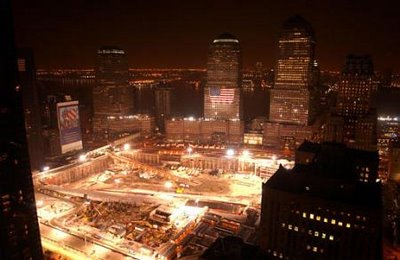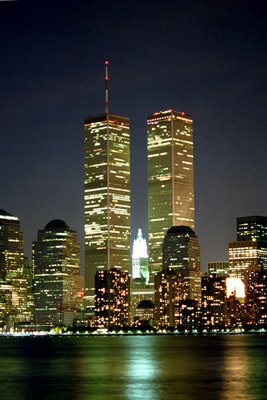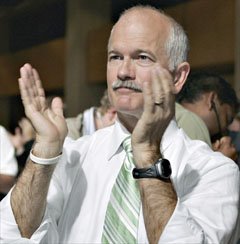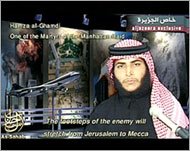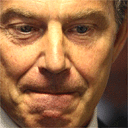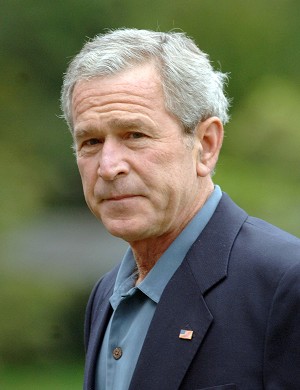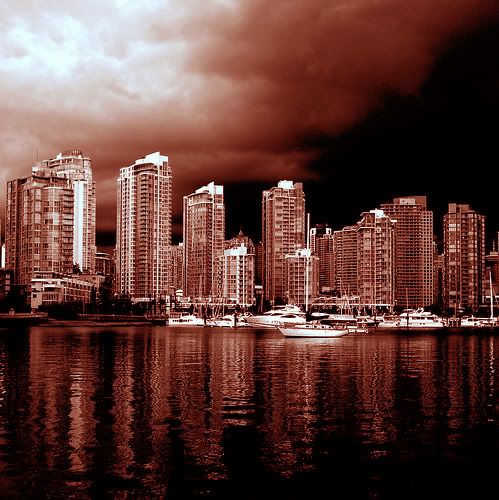 here's an article from the new york times regarding the senate committee's reports that were released today about the bush administration and iraqi intelligence, and how there was no link between saddam and al qaeda:
here's an article from the new york times regarding the senate committee's reports that were released today about the bush administration and iraqi intelligence, and how there was no link between saddam and al qaeda:
Senate Panel Releases Report on Iraq Intelligence
By Mark Mazzetti
Published: September 8, 2006
WASHINGTON, Sept. 8 — The Central Intelligence Agency last fall repudiated the idea that there were pre-war ties between Saddam Hussein’s government and the Jordanian terrorist Abu Musab Al Zarqawi, according to a report issued on Friday by the Senate intelligence committee.
The disclosure undercuts continuing claims by the Bush administration that such ties existed, and that they provided evidence of links between Iraq and Al Qaeda. The Republican-controlled committee also sharply criticized the administration for its reliance on the Iraqi National Congress during the run-up to the war in Iraq.
The findings, in two new reports, are part of an ongoing inquiry by the Senate committee into pre-war intelligence about Iraq. The conclusions went beyond the committee’s earlier findings, issued in the summer of 2004, by including criticism not just of American intelligence agencies but also the administration.
The reports did not address the politically divisive question of whether Bush administration had exaggerated or misused intelligence in its effort to win support for the invasion of Iraq. But they did serve to undercut the administration’s assertions, made before the war and since, that ties between Mr. Zarqawi and Mr. Hussein’s government provided evidence of a close relationship between Iraq and Al Qaeda.
As recently as two weeks ago, President Bush said at a news conference that Mr. Hussein “had relations with Zarqawi.’’ But a C.I.A. report completed in October 2005 t concluded instead that Sadddam Hussein’s regime “did not have a relationship, harbor, or even turn a blind eye toward Mr. Zarqawi and his associates,” according to the new Senate findings.
The C.I.A. report also directly contradicted claims made in February 2003 by Secretary of State Colin L. Powell, who mentioned Mr. Zarqawi by name no fewer than 20 times during a speech to the United Nations Security Council that made the administration’s case to go to war. In that speech, Mr. Powell said that Iraq “today harbors a deadly terrorist network’’ headed by Mr. Zarqawi, and dismissed as “not credible’’ assertions by the Iraqi government that it had no knowledge of Mr. Zarqawi’s whereabouts.
In fact, the Senate investigation concluded that Mr. Hussein regarded Al Qaeda as a threat rather as a potential ally, and that the Iraqi intelligence service “actively attempted to locate and capture al-Zarqawi without success.’’
The report by the committee specifically criticized a decision by the National Security Council in 2002 to maintain a close relationship with the Iraqi National Congress, headed by the exile leader Ahmed Chalabi, even after the C.I.A. and the Defence Intelligence Agency had warned that “the I.N.C was penetrated by hostile intelligence services,” notably Iran.
The report concluded that the I.N.C. had provided a large volume of flawed intelligence to the United States about Iraq, and concluded that the group “attempted to influence United States policy on Iraq by providing false information through defectors directed at convincing the United States that Iraq possessed weapons of mass destruction and links to terrorists.”
The findings and their release came at an inopportune time for the Bush Administration, which has spent the week trying to turn voters’ attention away from the missteps on Iraq and toward the more comfortable political territory of the continued terrorist threat to the United States.
On Friday, White House spokesman Tony Snow downplayed the significance of the reports, saying that they contained “nothing new” and was “re-litigating things that happened three years ago.”
“The important thing to do is to figure out what you’re doing tomorrow, and the day after, and the month after, and the year after to make sure that this war on terror is won,” Mr. Snow said.
The reports released are expected to be the least controversial aspects of what remains of the Senate committee’s investigation, whose incomplete tasks include addressing the question of whether the Bush administration’s assertions about Iraq accurately reflected the available intelligence.
But their completion had been delayed by months, and their release in the midst of a White House campaign that emphasized terrorism appeared to have occurred by coincidence.
The reports were actually approved by the committee in August, but went through a month-long declassification process. It was Senator Pat Roberts of Kansas, the committee’s Republican chairman, who set early September as the release date for the reports.
The committee’s initial report in 2004, which lambasted intelligence agencies for vastly overestimating the state of Iraq’s nuclear, biological and chemical weapons program, was issued with unanimous support. The reports released on Friday provided evidence of how much the relationship between Republicans and Democrats on the committee has degenerated over the past two years. A set of conclusions that included criticism of the administration’s ties with the Iraqi National Congress was opposed by several Republicans on the panel, including Mr. Roberts, but was approved with the support of two Republicans, Senators Chuck Hagel of Nebraska and Olympia Snowe of Maine, along with all seven Democrats.
Senator Roberts even took the unusual step of disavowing the conclusions about the role played by the I.N.C., saying that they were “misleading and are not supported by the facts.”
The report about the I.N.C. ‘s role concluded that faulty intelligence from the group made its way into several pre-war intelligence reports, including the October 2002 National Intelligence Estimate that directly preceded the Senate vote on the Iraq war. It says that sources introduced to American intelligence by the group directly influenced two key judgments of that document: that Mr. Hussein possessed mobile biological weapons laboratories and was trying to re-constitute his nuclear program.
The report said there was insufficient evidence to determine whether one of the most notorious of the intelligence sources used by the United States in the run-up to the Iraq war was tied to the Iraqi National Congress. The source, an Iraqi national code-named Curveball, was a key source for the American view that Mr. Hussien had a mobile biological weapons program, but the information that he provided was later entirely discredited.
But the report said other mistaken information about Iraq’s biological program had been provided by a source linked to the Iraqi National Congress, and it said the intelligence agencies’ use of the information had “constituted a serious error.’’
The dissenting opinion, signed by Mr. Roberts and four other Republican members of the committee, minimizes the role played by the Mr. Chalabi’s group. “Information from the I.N.C. and I.N.C.-affiliated defectors was not widely used in Intelligence Community products and played little role in the Intelligence Community’s judgments about Iraq’s W.M.D. programs,” the Republicans said.
Francis Brooke, an I.N.C. spokesman, called the report “tendentious, partisan, and misleading,” and agreed with the Republican dissent that the I.N.C. did not play a central role as the Bush Administration built the case for war.
At the same time, Mr. Brooke said his organization was surprised at how little the American government actually knew about Saddam Hussein’s regime before the Iraq war, which may have forced the American officials to rely more heavily on the I.N.C.
“We did not realize the paucity of human intelligence that the administration had on Iraq,” Mr. Brooke said.


 for detailed timelines and images on the project, go to project rebirth. there is also a webcam feed set up, where cameras were placed around ground zero. a picture is taken every minute, and then the images are relayed back to the website. check it out.
for detailed timelines and images on the project, go to project rebirth. there is also a webcam feed set up, where cameras were placed around ground zero. a picture is taken every minute, and then the images are relayed back to the website. check it out.
+Mini.jpg)
